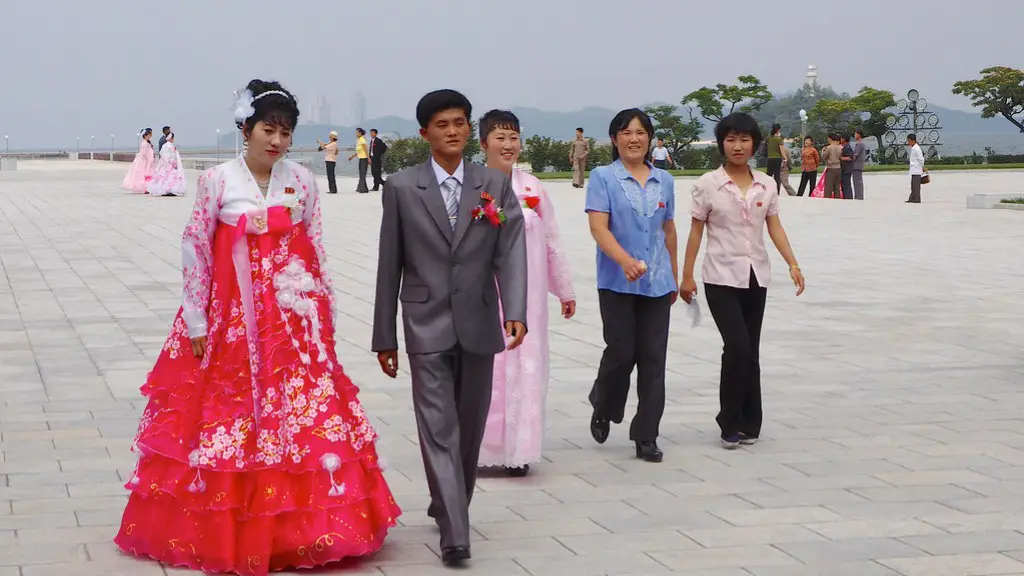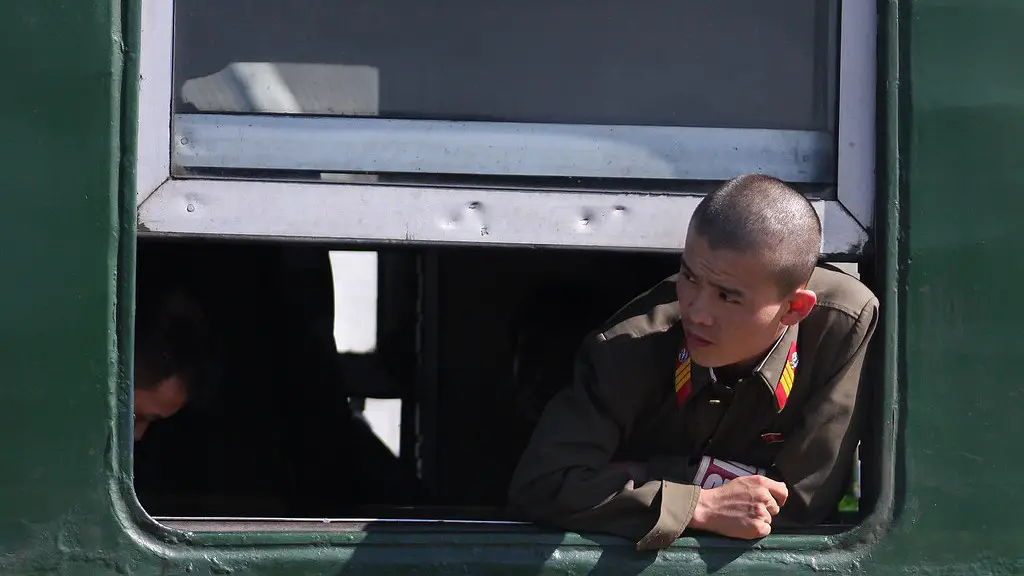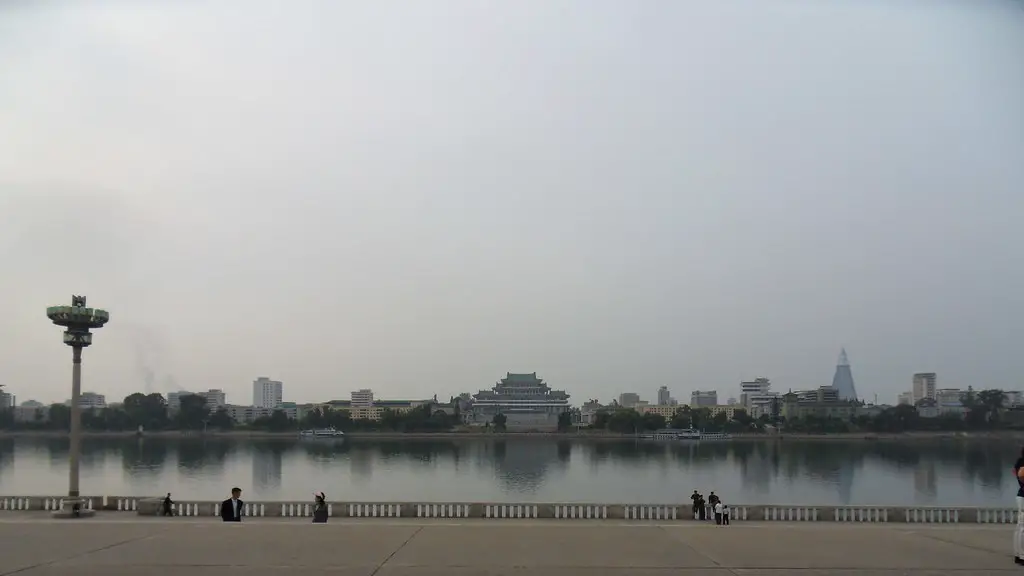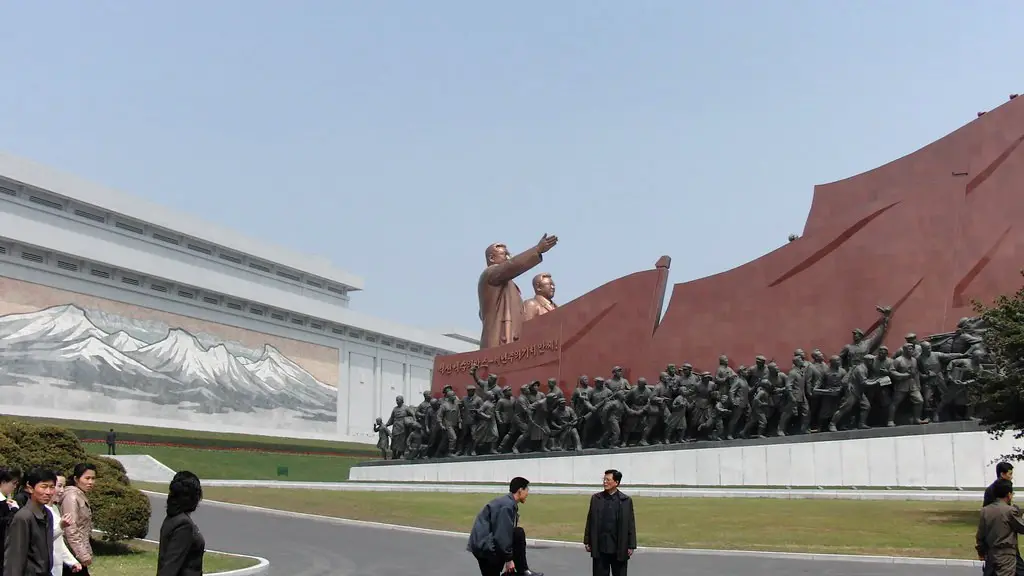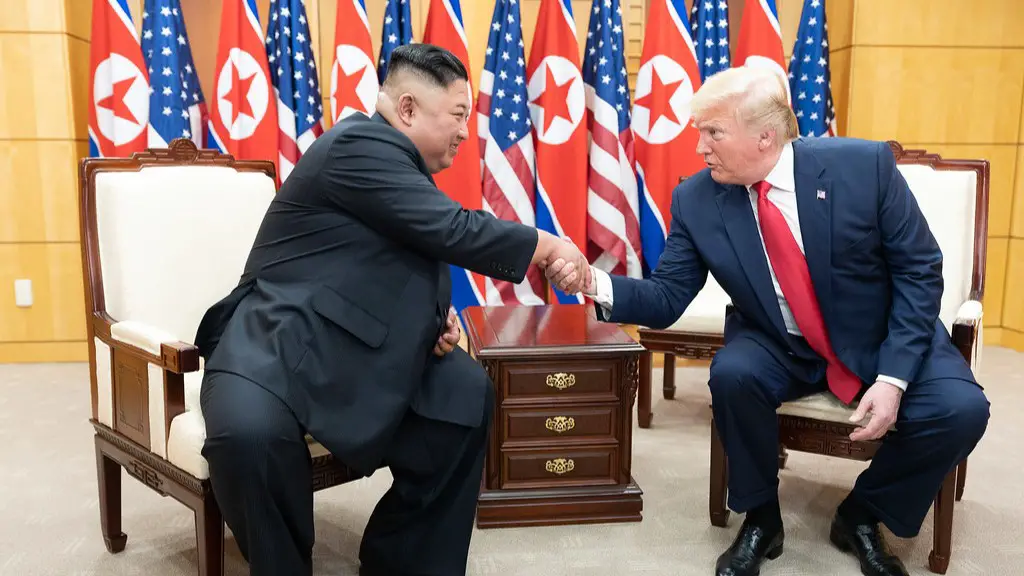Us going to war with North Korea has been a controversial topic for many years. North Korea, officially the Democratic People’s Republic of Korea (DPRK), is a country in East Asia bordered by China, Russia and South Korea. The DPRK’s leader, Kim Jong-un, has been a subject of criticism from world leaders due to the country’s human rights issues and refusal to cooperate with international sanctions. This has caused a huge debate as to whether or not to go to war with the state-run country.
The implications of a war with North Korea would be far-reaching, with the risk of a nuclear war a real possibility. According to experts, a US-North Korea war would have a huge human cost, with over 300,000 casualties in the case of a one-week war. This number would pertain to the populations of both countries, but South Korea would be the most affected due to their close proximity to the DPRK.
From an economic standpoint, a war with North Korea would be devastating. North Korea holds a significant amount of natural resources such as coal and iron ore, which would need to be secured in the event of war. On the other hand, South Korea is a major trading partner to the US, and its economy would suffer significantly in the event of war.
The cost of a war with North Korea would be so high in terms of human life, resources and economics that many argue that other means of resolving the conflict should be explored. In 2018, an official peace deal was proposed between South Korea and North Korea, but the talks stalled due to the US’s refusal to ease economic sanctions against the DPRK.
The influence of the US in the region has caused many to worry about its intentions in the Korean peninsula. It has been suggested that US intervention may be used as a way to project power in the region. This could further escalate the situation between North Korea and South Korea, and potentially lead to war.
Opponents of a US-North Korea war argue that diplomacy and dialogue rather than violence should be explored to resolve the issue. There are many organizations, such as Human Rights Watch, that are working to bring attention to the human rights issues in North Korea. Some have suggested that the US should participate in diplomatic talks and use its influence to bring about change in the country.
One of the issues that needs to be addressed is the nuclear weapons that the DPRK possess. In 2017, the US President Donald Trump commented that US would “totally destroy” North Korea if it was threatened by its nuclear weapons. However, there are many experts who believe that a dialogue should be opened between the US and North Korea to discuss nuclear disarmament.
Nuclear Disarmament
The issue of nuclear disarmament is of paramount importance for resolving the conflict between the US and North Korea. In 2002, North Korea signed the Non-Proliferation of Nuclear Weapons (NPT) treaty, agreeing to dismantle its nuclear weapons program. However, the country then withdrew from the treaty in 2003, citing the US as the reason for its decision, and has since increased its nuclear arsenal.
Due to the North Korean government’s stance on nuclear weapons, many experts are calling for the US to open lines of communication with the country. It is thought that by engaging in a dialogue, the US could pressure the DPRK to adhere to the NPT and, ultimately, reduce the amount of nuclear weapons in the region.
In recent years, some progress has been made in terms of nuclear disarmament in North Korea. In 2018, the DPRK destroyed some of its nuclear testing facilities and promised to refrain from further nuclear testing. This was seen as an encouraging step towards nuclear disarmament and was met with optimism by many of the world leaders.
US Sanctions
Another area that needs to be addressed in order to resolve the US- North Korea conflict is the economic sanctions imposed by the US on North Korea. These sanctions were imposed in response to the country’s nuclear weapons program and have contributed to the tense relations between the two countries.
The US has refused to lift the sanctions despite North Korea’s efforts to reduce its nuclear arsenal. This has led some to argue that the US is using economic sanctions as a means to exert power in the region and prop up a US-led regime.
On the other hand, there are those who argue that the sanctions are necessary in order to prevent the proliferation of nuclear weapons in the region. They argue that by keeping the sanctions in place, the US is putting pressure on North Korea to abide by international rules and continue in its efforts to reduce its nuclear arsenal.
Regardless of how one feels about the sanctions, it is clear that they are having a significant effect on the North Korean economy. According to reports from the United Nations, the sanctions have had a major impact on the economy and have led to shortages of food and fuel.
Seeking Peaceful Resolutions
Concerns about human rights abuses in North Korea and an escalating nuclear arms race have led many to argue that war is not the answer in resolving the US-North Korea conflict. Instead, dialogue and diplomacy should be explored as a way to bring about peace and stability in the region.
The US has the power to use its influence to bring about positive change in North Korea. This could take the form of diplomatic talks between the US and North Korea, or through the imposition of economic incentives to encourage the DPRK to reduce its nuclear weapons.
It is important to remember that war is a last resort and that peaceful resolutions should be sought before any active military action is taken. The US should not be looking to use its military power to impose its will on North Korea, but instead work together with international allies to bring about a peaceful resolution to the conflict.
Impact of Human Rights
When considering the US-North Korea conflict, the issue of human rights abuses in North Korea should also not be overlooked. Reports of human rights abuses in the country have been condemned by human rights organizations such as Amnesty International and Human Rights Watch.
It is clear that the North Korean government needs to make changes in order to protect and promote human rights in the country. However, some have argued that economic sanctions imposed by the US could have an adverse effect on the North Korean people and worsen the human rights situation in the country.
On the other hand, there are others who argue that economic sanctions are necessary in order to pressure the North Korean government to make changes. They argue that by keeping the sanctions in place, the US is sending a strong message to the DPRK that human rights abuses will not be tolerated.
Whatever one’s opinion on the matter, it is important to remember that human rights must be taken into consideration when discussing a potential US-North Korea war. If war is the only option, then it is essential that measures are taken to prevent the violation of these rights and ensure the safety of all civilians involved.
Issues with Media Representation
The media has played an important role in shaping public opinion around the US-North Korea conflict. Many news outlets have focused on the more sensational aspects of the conflict, such as missile tests and threats made by the North Korean government, rather than engaging in more constructive dialogue around diplomacy and peaceful resolutions.
The media also often overlooks the human cost of war and the potential implications for South Korea in the event of a US-North Korea conflict. As such, it is essential that media outlets consider the full range of potential impacts of the conflict before sensationalizing the issue.
It is also important for the media to ensure that their coverage is balanced and unbiased. Too often, outlets have leaned towards one side of the debate, which can lead to a misunderstanding of the issue and the potential outcomes of a US-North Korea war.
Overall, it is important for the media to consider all perspectives in the debate surrounding a US-North Korea war. By engaging in a more balanced and factual discussion of the issue, media outlets can help the public to make informed decisions about the potential implications of a war with North Korea.
